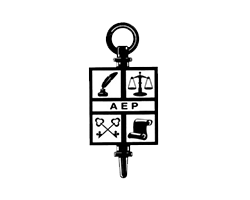
Trust Attorney serving converse
Estate Planning Services in Converse, TX
When it comes to protecting your legacy and ensuring your family’s financial security, establishing a trust can be one of the most powerful legal tools available. At Weisinger Law Firm, our experienced Converse trust lawyers are dedicated to helping individuals and families in Converse, TX, create tailored trust agreements that align with their estate planning goals.
Whether you're looking to avoid probate, minimize estate taxes, or provide for a loved one with special needs, our firm is here to guide you through the legal process with compassion, clarity, and precision.
Contact us today at (210) 985-9224 to schedule a consultation and take the first step towards protecting what matters most.
What is a Trust?
A trust is a legal arrangement in which a person (the "grantor" or "settlor") transfers assets to a third party (the "trustee") to be held and managed for the benefit of one or more beneficiaries. Unlike a will, which takes effect after your death, a trust can be effective during your lifetime (a living trust) or upon your death (a testamentary trust).
Trusts are widely used in estate planning for their flexibility, privacy, and efficiency. They allow you to place conditions on how and when your assets are distributed, which is especially helpful for protecting minors, individuals with disabilities, or beneficiaries who may not be financially responsible.
Common Types of Trusts
As your trusted Converse trust attorney, Weisinger Law Firm offers guidance on a wide variety of trusts. The most commonly used include:
- Revocable Living Trust: This type of trust allows you to retain control of your assets during your lifetime and make changes as needed. Upon your death, the assets pass directly to your beneficiaries without going through probate.
- Irrevocable Trust: Once established, an irrevocable trust generally cannot be altered or revoked. This structure offers greater protection from creditors and may reduce estate taxes.
- Special Needs Trust: Designed to provide for a disabled beneficiary without affecting their eligibility for government benefits like Medicaid or Supplemental Security Income (SSI).
- Charitable Trust: Allows you to support a charitable cause while receiving potential tax advantages. Two common types are Charitable Remainder Trusts (CRTs) and Charitable Lead Trusts (CLTs).
- Testamentary Trust: Created within your will and activated upon your death. Often used to manage assets for minor children or other beneficiaries who need financial oversight.
- Asset Protection Trust: Helps shield assets from lawsuits or creditors while maintaining some control and access under specific conditions.
Benefits of Trusts
Trusts are a strategic element in comprehensive estate planning, offering a wide array of benefits, such as:
- Avoiding Probate: Trusts allow for the transfer of assets without court involvement, which can save your heirs time and money while keeping your affairs private.
- Maintaining Privacy: Unlike wills, trusts are not public documents. This keeps sensitive information about your assets and beneficiaries confidential.
- Minimizing Taxes: Certain types of trusts can reduce estate taxes and protect your estate from excessive taxation upon your death.
- Protecting Beneficiaries: Trusts allow you to control how and when your assets are distributed, protecting vulnerable or financially inexperienced beneficiaries.
- Providing for Special Needs: A special needs trust can ensure long-term care for a disabled loved one without disrupting their access to essential benefits.
- Continuity of Asset Management: If you become incapacitated, your successor trustee can manage trust assets without court intervention, providing a seamless transition and avoiding guardianship proceedings.
Trust FAQs
Do I need a trust if I already have a will?
A will outlines your wishes after death but doesn’t avoid probate. A trust can complement a will and streamline asset distribution, especially for larger or more complex estates.
How much does it cost to set up a trust in Converse, TX?
The cost varies depending on the type of trust and complexity of your estate. At Weisinger Law Firm, we offer transparent pricing and customized solutions that fit your needs and budget.
Can I change a trust after it's been created?
If you create a revocable living trust, you can amend or revoke it at any time while you are mentally competent. However, irrevocable trusts are generally permanent and cannot be changed without court approval or beneficiary consent.
Is a trust only for wealthy individuals?
Absolutely not. Trusts are valuable tools for people at all income levels. Even modest estates can benefit from the privacy, efficiency, and protection a trust provides.
How are trusts taxed?
Trust taxation depends on the type of trust. Revocable trusts are typically taxed as part of your personal income, while irrevocable trusts may be treated as separate taxable entities. Our team can coordinate with your tax advisor to ensure compliance.
What assets can I place in a trust?
Common trust assets include real estate, bank accounts, investments, life insurance policies, and personal property. Nearly anything of value can be placed into a trust with proper legal guidance.
Work with a Knowledgeable Converse Trust Attorney
At Weisinger Law Firm, we understand that planning for the future involves making some of life’s most important decisions. That’s why our attorneys take the time to understand your unique circumstances and explain your options in plain language—no legal jargon, no confusion.
Whether you're establishing a simple living trust or navigating the complexities of an irrevocable trust, our team provides compassionate, client-focused legal counsel every step of the way.
Call (210) 985-9224 or contact us online today to schedule a consultation.
Questions?
-
What is “Estate Planning” and why is it important?An Estate Plan is simply a plan to protect you, your assets and your family in the case of unexpected events.
-
What is included in an “estate”?The word “estate” means everything you own at the time of your death.
-
How long does it take to create an Estate Plan?Our initial meeting with our clients usually lasts just over one hour.


-
"Their staff is extremely friendly and knowledgeable and we look forward to reaching out to them for anything else we need."Paul D.
-
"She was very knowledgable and professional and did a great job answering all of our questions. We would not hesitate to recommend Weisinger for your estate planning needs."William T.
-
"I was very pleased with the professional and friendly staff of Weisinger Law Firm. The Attorney handled my request, and the staff was always available for any questions I had."Cheryl B.
-
"They have been very good at getting back with me and working through all the details. I was also very pleased with the fees charged, I feel they are extremely fair and appropriate."Jess P.
-
"We used Weisinger Law Firm in 2016 to draw up and execute a variety of documents associated with wills and powers of attorney. In 2022, our mother passed away, and we went back to Weisinger for assistance in settling her estate."Kathryn W.
-
"Charlie Weisinger welcomed us and made sure our needs were taken care of."Joel M.
-
"They were patient on point on time very kind great people who work here."Lori C.
-
"Weisinger Law Firm was highly recommended to our son. Our Attorney there was John Arnold. John was really helpful in guiding us through every step."Terry W.


-
 The 8 Truths You Need to Know About Estate Planning Peace Through Planning
The 8 Truths You Need to Know About Estate Planning Peace Through PlanningWritten by: Charles Weisinger













